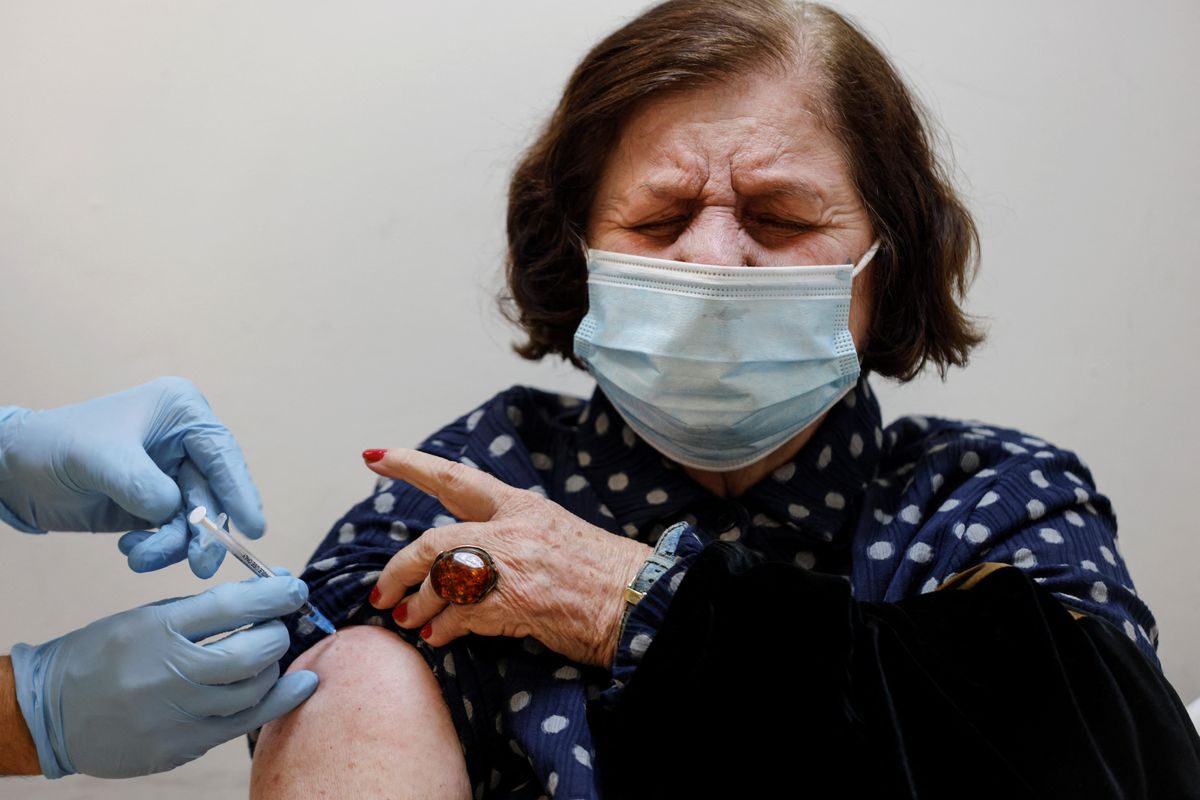Fourth time’s the charm in Israel. As the COVID omicron variant sweeps the globe, Israel has become the first country to roll out a fourth vaccine shot for health care workers, immunocompromised residents, and people over the age of 60. (The eligibility criteria will likely be broadened in the weeks ahead.) Pushing back against those who say that more research is required to gauge the effectiveness of a fourth shot, Prime Minister Naftali Bennett said that omicron is “a new ballgame altogether.” This comes as Israel's health ministry said recently that the country could soon reach herd immunity due to a combination of vaccination rates (64 percent of the population is fully vaccinated) and mounting infections (Bennett warned Sunday that daily infections could soon reach 50,000, up from the current daily caseload of 6,500). Israeli health officials say that although omicron’s spread is inevitable, the aim is to keep deaths and hospitalizations as low as possible by keeping inoculation rates sky-high. Will other countries follow suit?
As Biden tries to reassure Kyiv, Nordics get jittery. Days after Joe Biden held a tense two-hour call with Vladimir Putin over Moscow’s increasing encroachment on the Ukrainian border, the US president spoke to his Ukrainian counterpart, Volodymyr Zelensky. Biden told the Ukrainian president that America and its allies will “respond decisively” if Russia tries to invade Ukraine. (In recent months, Moscow has amassed 100,000 troops on Ukraine’s eastern border). The Kremlin, for its parts, wants reassurances that NATO won't expand further in Europe, and recently warned that relations with Washington could be severed entirely if its “red lines” aren't respected. But Washington’s attempts at shuttle diplomacy — coupled with strongly-worded threats — don’t seem to be making European states any less jittery: a debate not seen since Russia's 2014 invasion of Crimea has recently erupted in Finland over whether the state should apply to join NATO, after Moscow threatened to respond militarily if both Finland and Sweden join the alliance.
EU's sustainable energy investment plans. Brussels has proposed certifying nuclear power and natural gas as "green" sources of energy in order to encourage EU investment in both sectors. This is part of the bloc's overall efforts to achieve net zero carbon dioxide emissions by 2050. The plan will become law next year if a simple majority of EU member states agree. But the debate could get heated, particularly between France – newly inaugurated EU president and by far the EU's largest producer of electricity from atomic power – and Germany, which has dramatically scaled back its use of nuclear energy since the 2011 Fukushima accident in Japan in favor of renewable energy sources. Germany plans to be nuclear-free by the end of this year. While the French have nine mostly Eastern member states on their side, the Germans captain the EU's five-member anti-nuclear club. While nuclear power is reliable and generates almost zero direct emissions, nuclear plants are expensive, produce radioactive waste – and there's always the risk of another Chernobyl. Meanwhile, natural gas seems to generate more political consensus as a sustainable investment, though EU states including Germany, Austria and Luxembourg warn that certifying it as green, even only to facilitate the transition to more clean energy, would go against the EU's ambitious climate plans.

